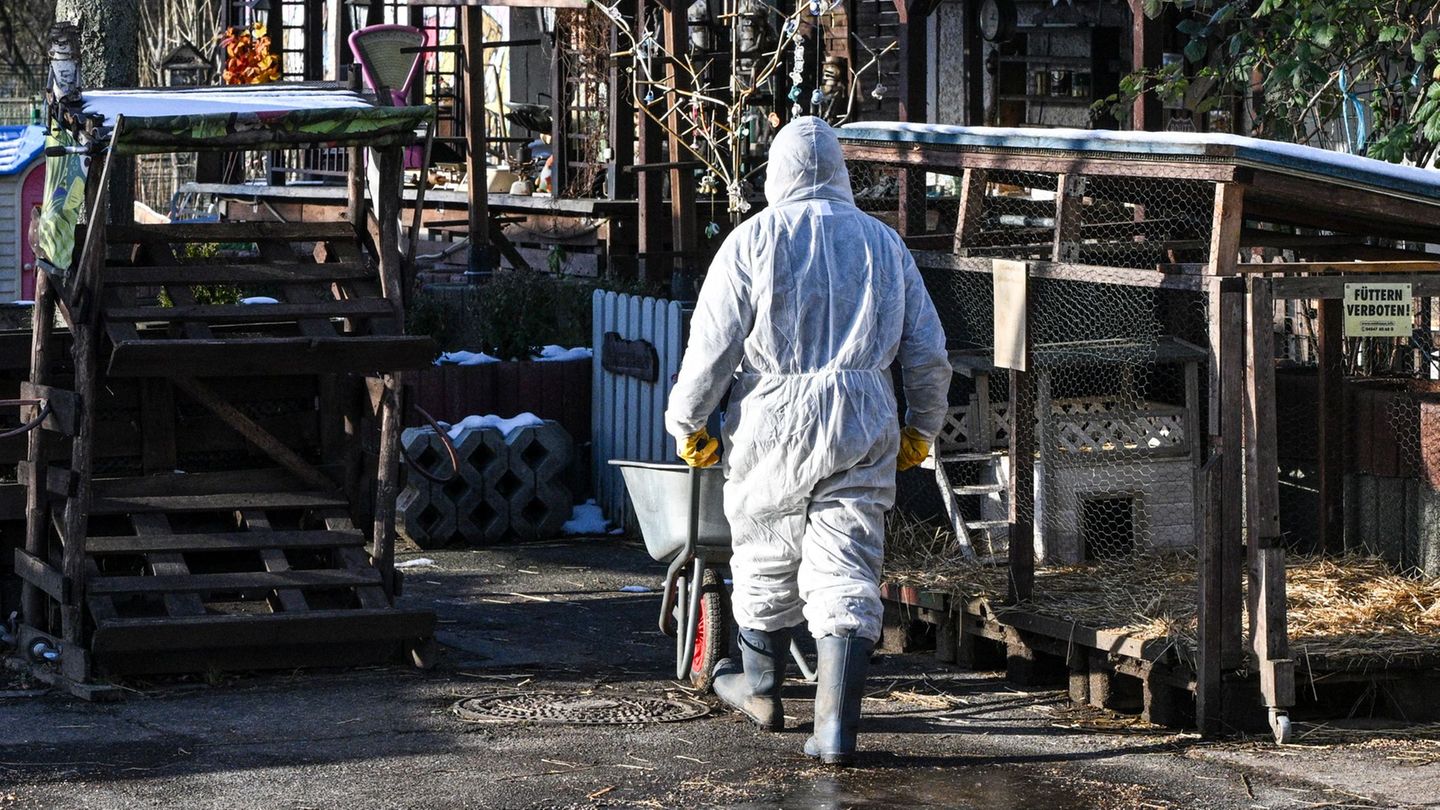Infected water buffalo
No further cases of epidemics – London imposes import ban
Copy the current link
Foot and mouth disease is highly contagious. A spread can have devastating consequences for animals and farmers. Another country imposes import restrictions.
Following the outbreak of foot-and-mouth disease (FMD) in water buffaloes in Hönow, Brandenburg, there are no further cases in the immediate radius of one kilometer. All samples were negative, as the Brandenburg Ministry of Agriculture announced. The samples are examined in the Berlin-Brandenburg state laboratory and, in some cases, also in the Friedrich Loeffler Institute (FLI) in Greifswald.
The 12 water buffalo samples from the affected farm were all positive, said FLI spokeswoman Elke Reinking. At the FLI, samples were also taken from a contact farm in the Oder-Spree district, which had purchased hay from the affected buffalo farm in Hönow and keeps pigs, goats and cattle, as well as samples from pigs in the area of the protection zone, some of which also belong to the district Barnim concerns. All are negative.
According to the FLI, testing is continuing. The Berlin-Brandenburg state laboratory is currently examining further samples from animals from the ten-kilometer monitoring zone.
Hopefully certainty in the coming days
The protection zone (3 kilometer radius) can be lifted at the earliest 15 days after completion of the preliminary cleaning and disinfection in the outbreak farms, but only if all susceptible animals kept in the protection zone have been clinically examined with negative results. The protection zone then becomes a surveillance zone for at least 15 more days.
Reinking explained that the surveillance zone (10 kilometer radius) could only be established at the earliest 30 days after the preliminary cleaning and disinfection was completed. But only if a representative number of farms in the monitoring zone where susceptible animals are kept were visited by official veterinarians, according to the FLI spokeswoman.
London imposes import ban
Great Britain has imposed a ban on the import of endangered ungulates from Germany due to the outbreak of foot and mouth disease. All measures are being taken “to limit the risk of the occurrence and spread of this devastating disease,” said Chief Veterinary Officer Christine Middlemiss. The import ban applies to ruminants and pigs, including game and also to fresh meat from ungulates.
Before Great Britain, South Korea and Mexico had already imposed import bans. When asked, the meat industry association said that almost two million tons of pork and beef were exported to the EU and third countries in the first ten months of last year. Sales in third countries alone amount to around one billion euros per year.
Not dangerous for humans
Foot and mouth disease (FMD) is a highly contagious viral disease of cloven-hoofed animals such as cattle, sheep, goats or pigs. Affected animals often show a high fever and the formation of blisters in the mouth and claw area. It is not dangerous for humans.
However, an outbreak can have devastating consequences for animals and livestock farmers. An outbreak in England in 2001 killed four million animals, mostly sheep. The financial damage was around $12 billion, according to the Bavarian State Office for Health and Food Safety. The last infections in Germany occurred in Lower Saxony in 1988.
dpa
Source: Stern




